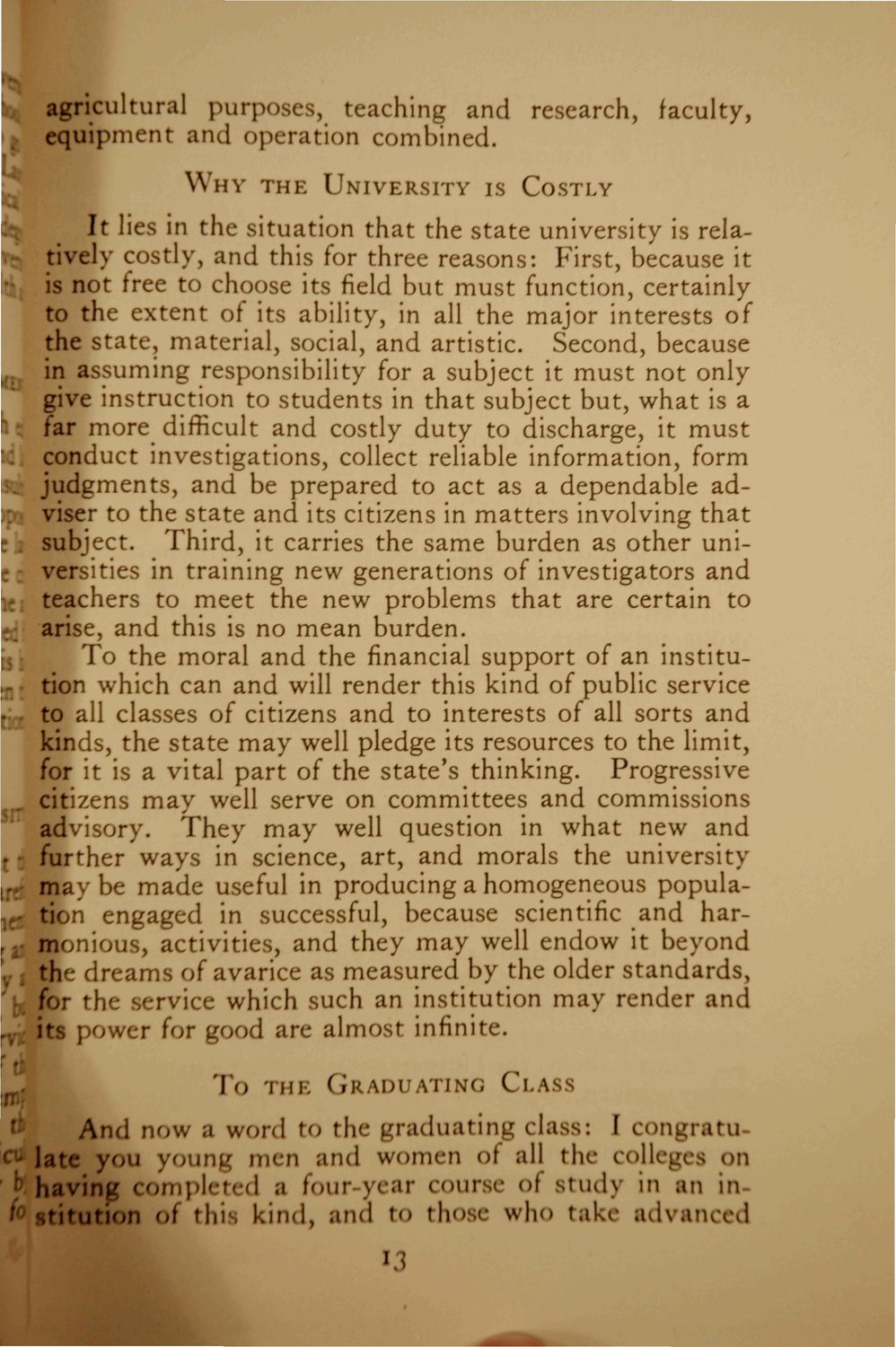| |
| |
Caption: Commencement - 1922
This is a reduced-resolution page image for fast online browsing.

EXTRACTED TEXT FROM PAGE:
agricultural purposes, teaching and research, faculty, equipment and operation combined. It W H Y THE UNIVERSITY IS COSTLY te <: at* )pn c I It lies in the situation that the state university is relatively costly, and this for three reasons: First, because it is not tree to choose its field but must function, certainly to the extent of its ability, in all the major interests of the state, material, social, and artistic. Second, because in assuming responsibility for a subject it must not only give instruction to students in that subject but, what is a far more difficult and costly duty to discharge, it must conduct investigations, collect reliable information, form judgments, and be prepared to act as a dependable adviser to the state and its citizens in matters involving that subject. Third, it carries the same burden as other universities in training new generations of investigators and teachers to meet the new problems that are certain to arise, and this is no mean burden. To the moral and the financial support of an institution which can and will render this kind of public service to all classes of citizens and to interests of all sorts and kinds, the state may well pledge its resources to the limit, for it is a vital part of the state's thinking. Progressive citizens may well serve on committees and commissions advisory. They may well question in what new and further ways in science, art, and morals the university m a y b e made useful in producing a homogeneous population engaged in successful, because scientific and harmonious, activities, and they may well endow it beyond the dreams of avarice as measured by the older standards, for the service which such an institution may render and its P' *ver for g >d are almost infinite. To THE GRADUATING CLASS And now a word to the graduating class: I congratu • late you young men and women of all the colleges on ' having compie I a f ur y« ourse oi Bturiy in an in of this kind, and to those who take advanced 1
| |